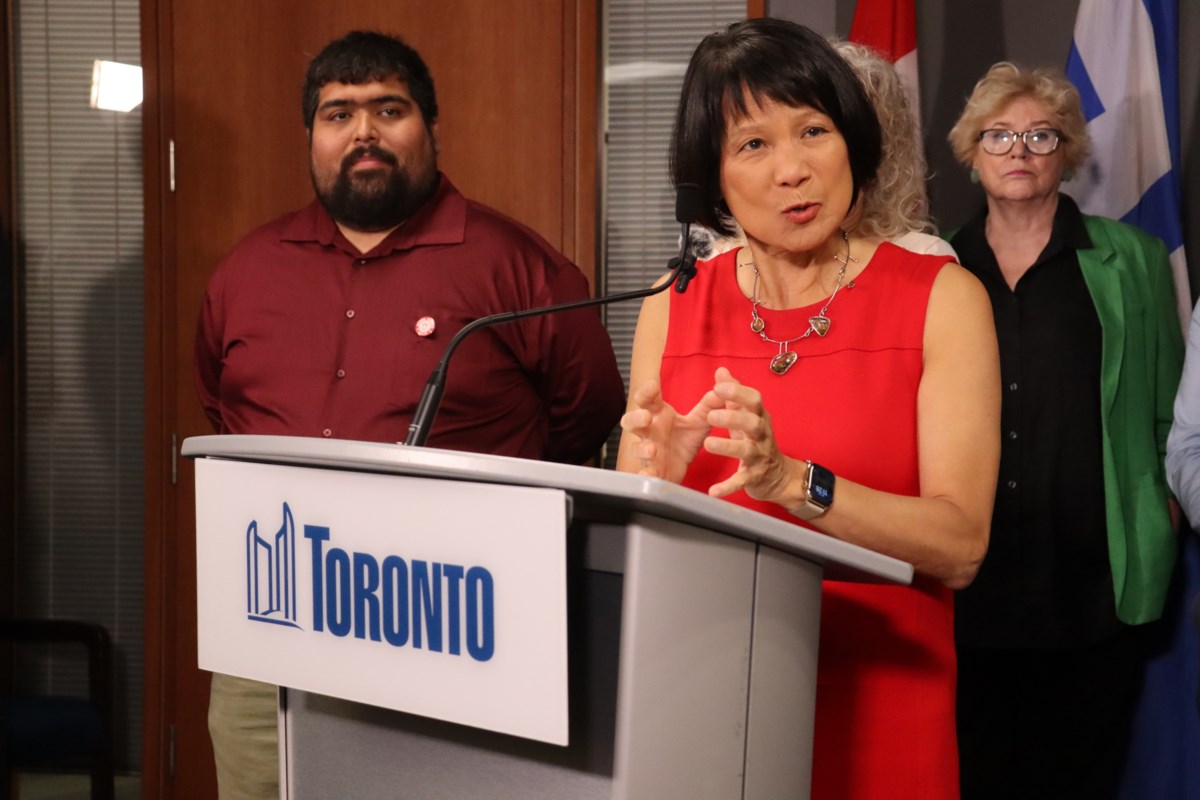
Toronto tenants will soon gain new protections against illegal evictions when a city bylaw aimed at cracking down on so-called “renovictions” takes effect next week.
Under the new rules, landlords must obtain a city-issued licence before evicting tenants to carry out renovations in a unit. Landlords will also be required to provide either temporary accommodation or financial compensation to their displaced tenants while the work is underway.
A renoviction is when a landlord uses renovations as an excuse to push out tenants and get around rent control rules so they can hike a unit’s monthly rent price for a future inhabitant.
“Far too often, landlords try to take advantage of tenants who might not fully understand their legal rights,” Mayor Olivia Chow said on Friday. The new bylaw will prevent tenants “from being wrongfully, illegally evicted from their homes.”
Renters were a key voting bloc that helped Chow win the 2023 mayoral byelection. She trounced her opponents in neighbourhoods that had a higher proportion of tenants.
On Friday, she made it clear she intends to keep delivering for that demographic. She is up for re-election in just over a year.
“For as long as I am mayor, city hall will always have tenants’ backs,” Chow declared.
Coun. Paula Fletcher (Toronto-Danforth), a close ally of Chow’s, said she has her sights set on further protections, like cracking down on landlords evicting tenants to let a family member move in.
“Probably next up is protecting those tenants that are living in a place where the landlord says I need my family there,” she said.
While the bylaw doesn’t come into effect until July 31, one tenant advocate thinks it’s already having an impact.
Yaroslava Montenegro, executive director of the Federation of Metro Tenants’ Association, said her organization is fielding far fewer calls from tenants about renovictions.
“I think it’s because of the threat of the renovictions by law,” she said.
How does Toronto’s renovictions bylaw work?
Under the new rules, landlords who issue an N13 eviction notice — used in Ontario when a unit needs to be vacant for renovations — must apply for a licence from the city, which will cost $700 per unit.
But before they can even apply, the landlord has to get a building permit. If they skip the licence and go ahead with the work anyway, they could face fines of up to $100,000 for each violation — and even more if the city finds they made money from breaking the rules.
As part of the process, the landlord has to provide the city with a Tenant Information Notice. The city will mail that notice to the affected rental units. It explains the tenant’s rights and outlines what’s supposed to happen during the renovation.
Tenants then have to decide whether they want to return to their unit once the work is finished or move out permanently.
If they plan to come back, the landlord has two options: either provide them with a temporary, similar unit at the same rent, or let the tenant find their own temporary housing and cover the difference between their usual rent and the average market rent for a similar place.
If the tenant chooses not to return, the landlord has to pay them a lump sum equal to three months of that rent gap.
Additionally, all displaced tenants — whether they’re returning to their units or not — must be paid a moving allowance: $1,500 for studio and one-bedroom units, and $2,500 for two-bedroom units or larger.
To ensure an eviction is legitimate, landlords also have to submit a report from a qualified professional, like an architect or engineer, confirming the renovations really require the tenant to move out.
Once the city approves a landlord’s licence, it has to be posted at the property while the work is happening. The licence is good for up to 12 months and can be transferred to a new owner, as long as the city is notified.